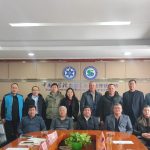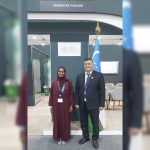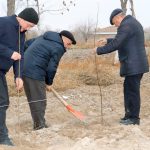The OSC 2024 Scientific Symposium on global climate change and water resource management was held from July 7 to 12 with the participation of more than 1,000 leading scientists and representatives of international organizations. The symposium focused on international collaborative research projects supported by the SATREPS program, which is implemented under the auspices of the Japan Science and Technology Agency (JST) and the Japan International Cooperation Agency (JICA).
As part of this Global Scientific Conference in Sapporo, Japan, Director of the International Innovation Center of the Aral Sea region B. Khabibullaev and Professor TANAKA Kenji spoke on the topic: “Development of innovative climate-resistant technologies for monitoring and controlling the efficiency of water use and the impact of salinity on the productivity of agricultural crops and livelihoods in the region Aral region.” Particular attention was paid to discussing the measures taken in Uzbekistan to improve the environmental situation in the region, and the conference participants were familiarized with the reforms carried out by the President and the Government of the Republic of Uzbekistan in the field of ecology, overcoming the consequences of the drying up of the Aral Sea, improving socio-economic indicators in the Aral Sea region and creating green cover on the dried seabed. Aimed at addressing global challenges such as climate change and water scarcity, the SATREPS program promotes international research partnerships between Japan and developing countries. This collaboration allows for the exchange of best practices, technologies and scientific data to develop effective strategies and solutions.
“The SATREPS program plays a key role in connecting the scientific community and addressing global challenges through collaborative research and innovation,” said a JST spokesperson. “Our joint efforts with JICA are aimed at creating sustainable solutions that will benefit not only Japan, but also developing countries around the world.” Participation in OSC 2024 will allow scientists, policymakers and members of the public to discuss current issues and strengthen international cooperation to achieve a sustainable future.
![]()

























